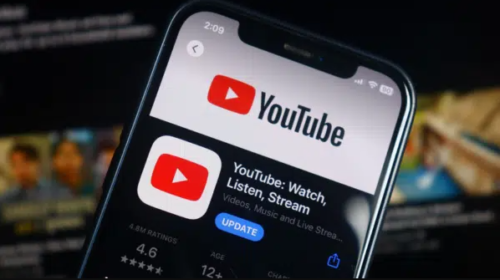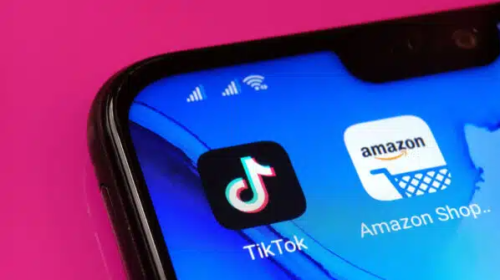aimClear’s Psychographic Targeting for Political Advertising Agencies’ WINS
In round 3 of our political social targeting series we look at how psychographic targeting will impact paid social during the ongoing presidential campaign and the thousands of undercard races that are about to launch in 2016. For this edition, we tapped the experience of one of our own: Kevin Watterson, who worked in […]
In round 3 of our political social targeting series we look at how psychographic targeting will impact paid social during the ongoing presidential campaign and the thousands of undercard races that are about to launch in 2016. For this edition, we tapped the experience of one of our own: Kevin Watterson, who worked in the campaign trenches of five election cycles, to open up Facebook psychographic targeting to reach the absolute Holy Grail of politics: voters.
These targeting concepts are built at the intersection of marketing and political strategy. We’re not just sharing ways to find voters aligned with a certain candidate or cause; we’re pulling back the curtain on how campaigns will find you over the next 11 months.
You can think of an election as a one-day sale with the world’s longest crowd-funded advertising campaign. The products are candidates, the KPI is votes received. Secondary KPIs might include dollars raised and volunteers recruited, both of which support driving the primary KPI higher. For months – years in some cases – campaigns identify likely voters, try to persuade undecided voters and raise the money they need to get as many people into their store as possible on Election Day. It’s no different than a marketing funnel any business would develop.
Let’s jump into Facebook and look at tactics for achieving the highest KPI possible.
New for the 2016 Cycle: Address Targeting
Every campaign should be taking advantage of Facebook’s address targeting in 2016. Period.
Just like digital marketers have access to customer databases, political campaigns have massive voter databases with demographic and psychographic data at their disposal. These databases also contain voters’ home addresses. This lets campaigns know where their supporters live, where their opponents live and where those oh-so-crucial swing voters call home.
Every day, campaigns give their candidates and supporters a “walk list” with hundreds of addresses to canvas. Good campaigns send their ground game methodically through neighborhoods and cities, making face-to-face contacts with as many undecided voters and supporters as possible, trying to earn their business (aka, their vote) on Election Day. It’s an incredibly time-intensive and people-focused operation, but it’s objective is to earn the same real-life signals digital marketers strive for in social media: personal recommendations. Just like social media users value the recommendations of people they know and trust in their social networks, voters place enormous credibility in their real-life connections recommending a political candidate. When a candidate meets a voter at the door and that voter tells their trusted circle they support the candidate, it is essentially a real-life Facebook share.
It used to be that campaigns would work voters through their funnel by supplementing their door-knocking with mailers. You might get a piece of candidate literature in the mail on a Monday (first touch), have a supporter knock on your door a few days or weeks later (second touch), then get another mailer a few weeks after that (third touch).
Now, thanks to the address targeting Facebook unveiled in April 2015, campaigns can ditch the costly mailers. They can target the precise neighborhoods they are door-knocking using just one address from their daily walk list.
We’ll build out a targeting audience for a campaign that sent four groups of supporters out in one day to deliver its education message to parents.
- Take one centralized address from one walk list and put it into Facebook location targeting.
- Set the radius from the address to the smallest setting. Right now, that’s 0.63 miles. That will give a nice view of the targeted area and be pretty close to the geographical area one campaign team was able to hit in their day.

- Input one address from the other three walk lists. You’ll get a map that looks like this:

- Layer in the rest of the targeting. In addition to the school districts in that day’s door knocking area, remember to comb Interest categories for parents associations such as band boosters, athletic boosters, etc, and any student groups their kids might be involved in.

With address targeting, political campaigns can make their first touch, followed immediately by their in-person contact and their follow-up contact within a day, two days, possibly even only hours after meeting someone on their doorstep. For first-time candidates with low name recognition, combining door knocking and address targeting in these clustered geos can help establish the name ID they’ll need to earn their .
If this tactic sounds familiar to digital marketers, it should. It’s essentially retargeting triggered by a face-to-face interaction. From one neighborhood to the next, candidates will be able to reinforce a message, drive donations or earn social signals that become increasingly valuable as Election Day draws closer.
Slicing Address Targeting For Boots-On-The-Ground to Town Hall Meetings
For the targeting laid out above, targeting “people who live in this location” is most effective. To reach people at or after an event campaigns should choose “everyone in this location” or “people recently in this location.” If a local campaign just had a huge event with the governor, this could be an excellent way to stay top of mind with people who attended the rally or recruit supporters to bump up their volunteer KPI. If it’s close to Election Day (or within their state’s early/absentee voting period) the campaign can serve up a get-out-the-vote message. Or maybe a Facebook carousel ad laying out the steps to apply for an absentee ballot?
Campaigns that don’t at least explore the potential of address targeting aren’t playing to win. It’s that simple.
You Have Those Lists… USE ‘EM!
This one is for the over-worked campaign staffers just trying to keep their heads above water. You got saddled with the social media work because you’re young and kinda funny on Twitter, so you must know what you’re doing. You know you should be doing ads in Facebook, but you’re not really sure how and spending time to figure it all out just isn’t feasible. Believe me, I’ve been there. Fortunately, digital marketers who spend their days immersed in social advertising figured it out for you. And it’s easy. 
You already have what you need to do effective Facebook marketing: Email lists and phone numbers. And oh yeah, probably a Facebook Page (or two) devoted to your candidate. Facebook makes it ridiculously easy to upload your lists and match the emails and phone numbers to Facebook profiles. That’s right – Facebook will tie your list of 10,000 email addresses to whatever Facebook profile that address is associated with. It will take the endless phone lists that power your call center operations and do the same. With a few clicks your supporters are in one spot for you to reach on social media. You can even import directly from your MailChimp account. Your candidate will think you’re a genius.
If you want to be a little more advanced, you can set up a Facebook retargeting pixel on your campaign’s website. With that in place you’ll be able to run Facebook ads targeting the people who previously visited your site. You can track people who visit your education page and serve them an ad about your education plan, or you can advertise your next event to people who sign up on the Get Involved page. You can even stalk target your site’s visitors with a donation link.
Get More Out of Owned Assets > Lookalikes
Once you have your emails, phone numbers and retargeting pixels loaded, you can create what Facebook calls a Lookalike Audience. When you create one of these, Facebook will look at the users it found from the lists you uploaded and find other users who appear to have the same interests, behaviors and traits. Think of it as a prospecting list, but for Facebook. It’s a list to target with a first-touch or layer in other targeting to hit with a custom message. For example, target people in your Lookalike Audience who support tax policies that align with your candidate. 
This is what digital marketers are doing every day to sell their products. Now you can do it to sell your candidate and WIN their ticket to The Hill or The White House.
What To Be Careful Of
For campaigns and marketers alike, be careful not to rely too heavily on Facebook’s pre-determined demographics to do the heavy lifting for voter targeting. This is the psychographic hot house, after all.
As much as they might seem like it from the outside, political parties are not monolithic user groups. People are drawn into their affiliations from every which way. There are evangelical conservatives and fiscal conservatives; social liberals and center-right liberals. And those are just the voters you can safely determine fall left or right. It’s even murkier in the vast middle where someone sides with Republicans on taxes, Democrats on social issues and goes back and forth on issues farther down the line. They might even side with Democrats on one social issue and Republicans on another.
The tip here: Do real psychographic targeting to help ensure your audiences find the personas your candidate, campaign or cause want to target and who are most receptive to your message. In the quick examples below, it is pretty clear to whom the examples are targeting, but neither includes any mention of political party or ideological labels. Why do it this way? To spur an action you want to connect with someone as close to the heart of their affinity as you can get. A party ID might get you close. Psychographics will get you closer. 
More Ways To Win!
Target New Voters. Ever moved to a new city and received a flyer in the mail from a local elected official with welcome information and how to register to vote? Politicians are on top of every opportunity to reach new voters, and now they can reach out via Facebook.
Through the demographic targeting available in Life Events:
And through length of residence in the behaviors bucket:
If they want to get their hooks in super early, they can even target 17-year-olds who are about to reach voting age:
One of the things campaigns focus on during their get out the vote drive is pulling as many votes as possible from their best precincts. Pairing any of these new-voter targeting tactics with location-based targeting can dial directly into geographic areas a campaign needs to dominate and push that KPI a little higher.
Reach Absentee Voters. We mentioned absentee voters earlier when talking about location targeting after rallies. There’s a Life Events category specifically for people away from their hometown. Often times if someone is living away from home (think: college students, active service members) they will keep their voter registration tied to their permanent location. Since the KPI is votes received, help them get their absentee ballot:
Oh Yeah, College Students. While we’re on the subject of college students, several states allow same-day voter registration, which is a huge benefit for college students who want to vote in the district their college resides in instead of where their parents live. Reaching this portion of the electorate with traditional methods is virtually ineffective. They don’t have landlines, they couldn’t care less about snail mail and it’s difficult or impossible for campaigns to access dorms and apartment buildings for door-to-door contacts. Campaigns need to go where they are at: online. Facebook makes it easy with education level targeting in the demographics bucket.
Don’t stop there. Make your ads more relevant by using custom creative targeted by field of study and interest targeting. We found more than 9,000 Facebook users within 5 miles of the University of Minnesota (a state with same-day registration) who are in college/grad school and have psychographic interests tying them to one party or the other. That’s a lot of potential KPIs a campaign is leaving on the table if it ignores Facebook’s ability to reach them. Induce #FOMO and get them out to the polls on Election Day.
Remind Travelers. Campaigns can also find potential absentee voters via travel behaviors. For states that have absentee deadlines, layering travel frequency on top of their target voters’ psychographic interests and serving ads reminding them to register to vote absentee can catch supporters who would have otherwise missed the deadline. Sneaky!
Don’t forget to go down in the Behaviors and grab Expats!
If a campaign puts even minimal effort into this kind of targeting and built a quick landing page guiding new voters through the registration process, leading new residents to find their polling place or helping absentee voters navigate through that process, it would be covering the bases in a way previous campaigns could only dream about.
It wasn’t too long ago when being able to target TV ads to a cable company’s local ZIP code map was a radical new method for campaigns to reach voters with specific messages. Social media took campaigning by storm when organic ruled the medium, now we’re fully into the paid social era. Campaigns that want to win the battle for the highest Election Day KPI had better be on board.














